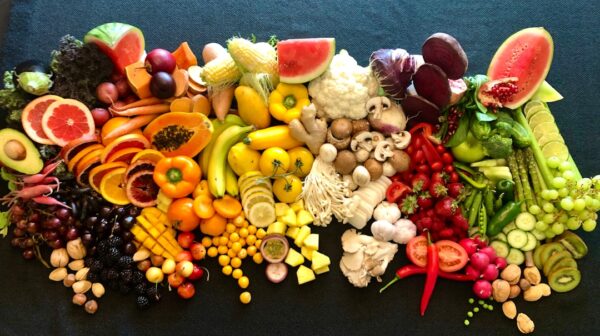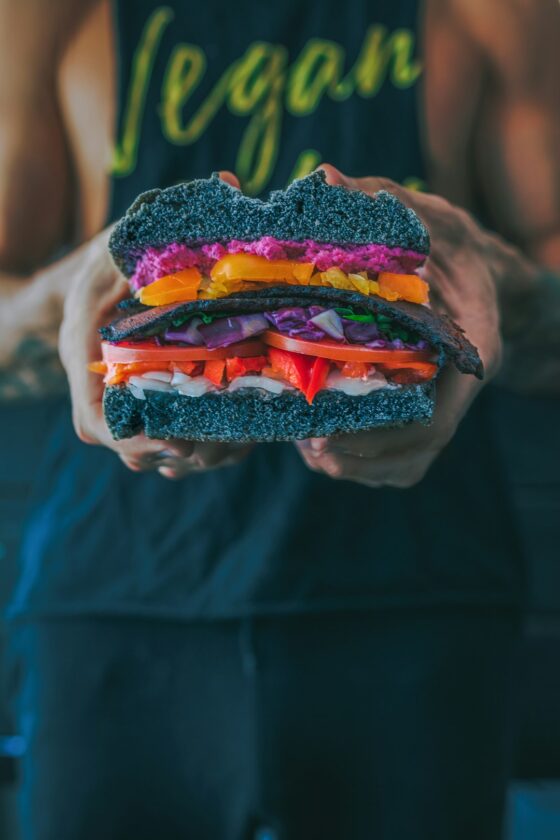Understanding Gut Health
Your gut is home to trillions of bacteria, collectively known as the gut microbiome. These microorganisms play a crucial role in digestion, immunity, and even mental health. A balanced microbiome is vital for overall health, and diet is one of the most significant contributors to its balance.
Top Gut Health Foods
Including a variety of gut health foods in your diet can help nourish your microbiome. Here’s a list of some of the best foods to consider:
1. Fermented Foods
Fermented foods are rich in probiotics, which are beneficial bacteria that promote gut health.
- Yogurt: Look for live and active cultures.
- Kefir: A probiotic-rich fermented milk drink.
- Sauerkraut: Fermented cabbage rich in fiber and probiotics.
- Kombucha: A fizzy fermented tea with various health benefits.
- Miso: A fermented soybean paste, often used in soups.
2. Prebiotic Foods
Prebiotics are types of fiber that feed the good bacteria in your gut.
- Garlic: Contains compounds that promote beneficial bacteria.
- Onions: Rich in fructooligosaccharides, a prebiotic fiber.
- Bananas: A natural source of prebiotic fibers.
- Asparagus: Loaded with prebiotic fiber to support digestion.
- Chicory root: Often used as a coffee substitute and is high in inulin, a prebiotic fiber.
3. High-Fiber Foods
Fiber is essential for healthy digestion and regular bowel movements.
- Legumes: Beans, lentils, and chickpeas are excellent sources of fiber.
- Whole grains: Opt for whole oats, brown rice, and quinoa.
- Fruits: Apples, berries, and pears provide fiber and nutrients.
- Vegetables: Dark leafy greens, broccoli, and Brussels sprouts are great choices.
- Nuts and seeds: Almonds, chia seeds, and flaxseeds add both fiber and healthy fats.
4. Bone Broth
Bone broth is rich in collagen, gelatin, and amino acids that can help heal the gut lining.
- Homemade bone broth is simple to make and can be enriched with vegetables and herbs.
- Use bone broth as a base for soups, stews, and sauces.
Incorporating Gut Health Foods into Your Diet
Now that you know which foods to include, here are some tips to help you integrate them into your daily meals:
Breakfast
- Add yogurt or kefir to smoothies with fruits and greens.
- Include oats topped with sliced bananas and a sprinkle of chia seeds.
- Make a veggie omelet with onions, garlic, and spinach.
Lunch
- Create a salad with mixed greens, chickpeas, and a vinaigrette made with garlic and lemon.
- Enjoy a miso soup loaded with seasonal vegetables.
- Use fermented vegetables like sauerkraut as toppings for sandwiches or wraps.
Dinner
- Make a stir-fry with plenty of colorful vegetables and tofu or shrimp, served over brown rice.
- Prepare a hearty vegetable and bean soup using bone broth as the base.
- Roast a variety of vegetables with garlic and onions as a flavorful side dish.
Snacks
- Opt for hummus with carrot and cucumber sticks.
- Enjoy a handful of nuts as a quick energy boost.
- Choose fruits like apples or berries as a naturally sweet snack.
Additional Tips for Supporting Gut Health
To further enhance your gut health, consider the following tips:
- Stay hydrated: Water is essential for digestion and nutrient absorption.
- Limit processed and sugary foods: They can disrupt your gut bacteria.
- Avoid overuse of antibiotics: Use them only when necessary, as they can harm gut flora.
- Manage stress: Practice relaxation techniques such as meditation, yoga, or deep breathing.
- Get regular exercise: Physical activity promotes healthy digestion.
Conclusion
Integrating gut health foods into your diet can significantly improve your digestive function, support your immune system, and enhance your overall well-being. By focusing on a variety of fermented and fiber-rich foods, you can create a nutrient-dense diet that nourishes both your body and your gut microbiome.
Explore new recipes and culinary practices to keep your meals exciting while prioritizing your gut health. Remember, small changes can lead to significant improvements in your digestive wellness!



